Our Model
Amani's Primary Care Network
An integrated health system for providing comprehensive care for Idjwi Island's 300,000 impoverished inhabitants.

We currently have 1 regional hospital that serves 75,000 patients every year. The hospital on Idjwi was completed in 2014. It employs five full-time doctors and 20 full-time nurses, as well as administrative and support staff.
The hospital provides the following services:
- Internal Medicine;
- Surgery;
- Pediatrics;
- Obstetrics and Gynecology; and
- Laboratory Services.
All medical services are free to patients with a special focus on children under five years of age, pregnant women, and the native population, which constitutes 5% of the population and whose life expectancy is 25 years.
We partner with existing government-funded health clinics. These clinics are refurbished and provided medical supplies and equipment so they can offer family planning, malaria prevention, and other treatments and service. They are typically staffed by a nurse.
We train, equip and dispatch Community Health Worker’s (CHW’s) who visit households in their assigned health areas to proactively seek under-5 year- old child who is sick, any pregnant women in need of prenatal or post-delivery care.
- They have four main roles: identifying sick and at-risk persons within the service area and providing basic treatment or referring them to the clinic or hospital ;
- educating community members about best health practices;
- capturing data about health issues on Idjwi; and
- broadly dispensing specific medications for certain neglected tropical diseases such as intestinal worms.
Expanding Our Network
Covering the Healthcare Needs of Idjwi's 300,00 Residents
Amani Global Work’s integrated health care system must grow in order to cover the needs of the Idjwi’s 300,000 residents.
Northern Idjwi currently has 9 local health clinics that are supported by the South Kivu Province Ministry of Health and local churches. Building on the success of our initial pilot, we are collaborating with the government to strengthen the local health systems by integrating them into Amani’s health care model. Clinics will be furnished with medical supplies and refurbished medical equipment, that are vital for the frontline work of family planning and malaria prevention / treatment. Community Health Workers will make referrals to these clinics. This will also provide Community Health Workers with the opportunity to receive further training from the clinics’ staff and AGW hospital staff.
If successful, this system also has the potential to be replicated and applied in the Eastern DRC and change the country’s existing healthcare system trajectory.
